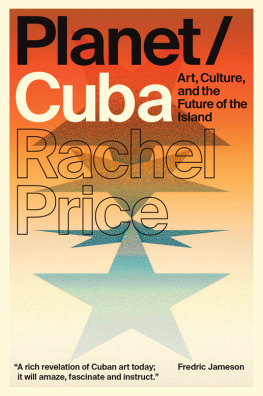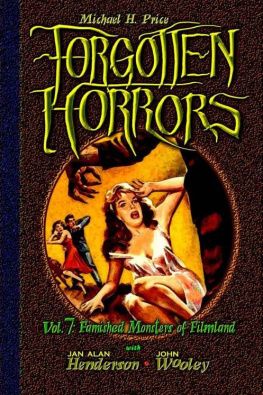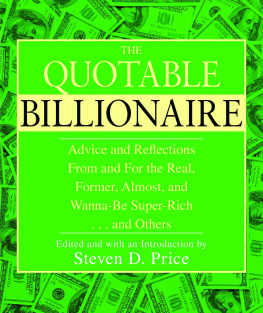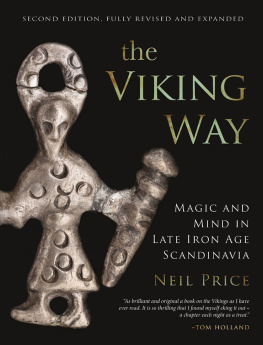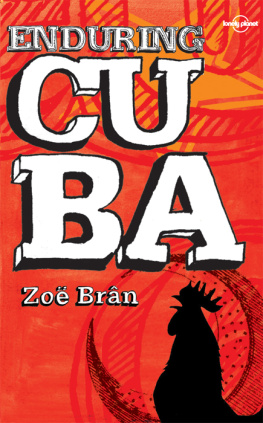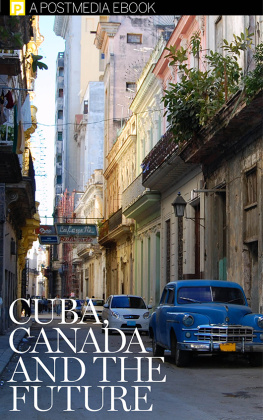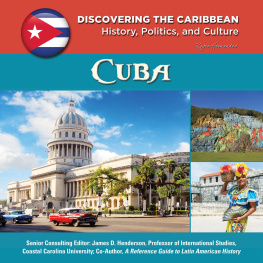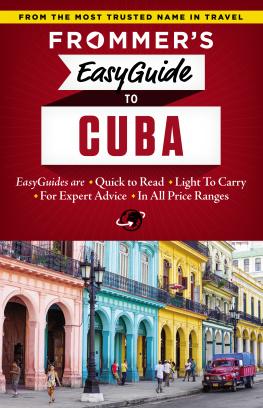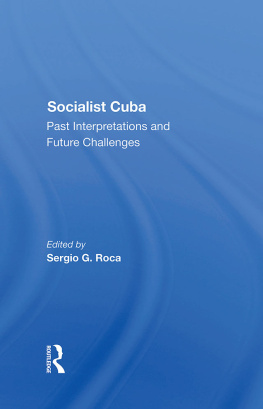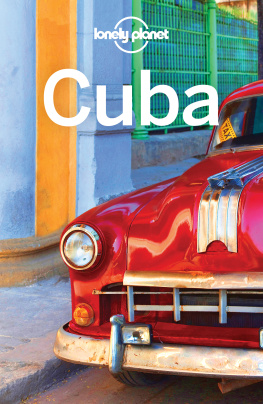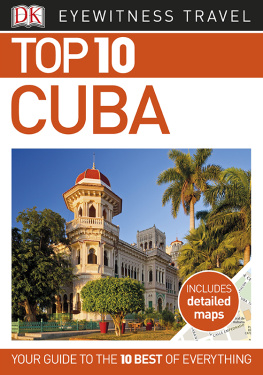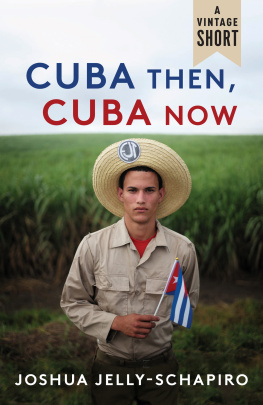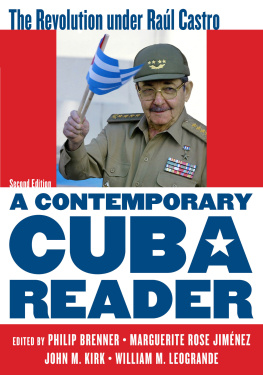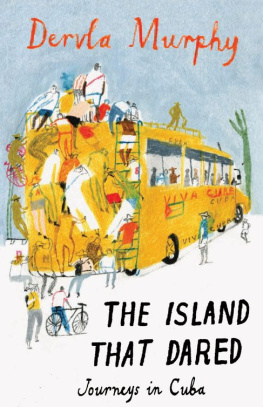Planet/Cuba / Rachel Price.
ISBN 978-1-78478-121-7 (paperback)ISBN 978-1-78478-124-8 (hardcover)ISBN 978-1-78478-122-4 (ebook)
1. Arts, Cuban21st centuryThemes, motives. 2. Arts and societyCubaHistory21st century. I. Title.
Many people helped me with the research and conception of this book. My deepest thanks go first and foremost to all of the artists and writers who have shared their work with me, and without whom the book would not exist.
I also wish to thank the following colleagues, friends, and institutions for their assistance in locating relevant works and archives, or for comments on portions of the book: Adrian Lpez Denis, Ahmel Echeverra, Alberto Toscano, Anke Birkenmaier, Anya Zilberstein, the Archivo Veigas, Ariana Hernndez-Reguant, Armando Fernndez, Beatriz Gago, Bettina Funcke, Javier Guerrero, Biblioteca Nacional Jos Mart, Caridad Tamayo, Dan Whittle, Eduardo Gonzlez, Erick Mota, Ernesto Oroza, Evelyn Prez, Frenzy, the Fundacin Antonio Nez Jimnez, Gabriela Nouzeilles, Gavin Arnall, Gean Moreno, Gerardo Muoz, Gloria Gmez, Irene Small, Jacques Khalip, Jenny Rhee, Jim Brittingham, Jorge Enrique Lage, Jorge Marturano, Jos Ramn Snchez, Joshua Dubler, Kevin Beovides, Lzaro Gmez, Lester lvarez, Lizabel Mnica Villares, Magaly Espinosa, Melissa Larner, Michelle Chase, Orlando Luis Pardo Lazo, Rafael Almanza, Ramn Hondal, Ral Aguiar, Reina Mara Rodrguez, Reinaldo Funes, Rewell Altunaga, Robert Hullot-Kentor, Samuel Riera, Sarah Doty, Seth Price, Shambhavi Kaul, Sonya Posmetier, Sophia Lee, Tania Bruguera, Vctor Fowler.
A very special thanks to Jacqueline Loss, Julio Ramos, and Rachel Weiss, who read the whole manuscript at different points and offered invaluable suggestions.
A teaching leave enabled by Princeton Universitys Jonathan Dickinson Bicentennial Preceptorship gave me the time needed to write up my research.
All conclusions and errors are my own.
A few paragraphs in the introduction and in were published as Pozo inagotable, Autopista infinita in La Noria (no. 7, November 2013). I am grateful to these journals for permission to publish the excerpts.
In the weeks leading up to the December 17, 2014 surprise announcement by Presidents Barack Obama and Ral Castro of the normalization of diplomatic relations between the United States and Cuba, rumors circulated among scholars of Cuba about a coming lifting of the embargo, or the removal of Cuba from a list of state sponsors of terrorism. But such change was thought to be months away, if it was to come at all, and the rumors seemed as much wishful thinking as policy predictions. When, just days before the winter solstice, the two heads of state simultaneously confirmed renewed relations, many were incredulous that such a seismic event could arrive so unexpectedly. In Cuba, people pointed to the date of the announcementthe day of San Lzaro, who is melded with the Yoruban-derived deity Babal Ayas proof of its miraculous nature. Soon thereafter we learned that the bilateral negotiations preceding the agreement had in fact taken some eighteen months.
Although most of the details of the new relationship remained to be worked out, a new era had undoubtedly begun. New laws, new agreements, new credit lines, new exchanges, the release of political prisonersall were imminent. Profound changes felt palpable for Cuban politics, the economy, built and natural environments, and society.
In truth, however, Cuba has always been changing. Daily life as much as political and aesthetic imaginations long ago diverged from state rhetoric. The everyday, the planetary, and the digital increasingly replace national, regional, and analog narratives and counter-narratives. And if internet connections on the island remain famously scarce, controlled, and slow, since about 2013 Cubans have had realtime access to a wide array of pirated global television programs, films, and apps through the paquete, or packet, a weekly curation of digital information circulated for a low price via flash drives and computers.
Freed from any obligation to verisimilitude, emerging writers and artists are forging a range of possible worlds. Take, for instance, the recent novel by the author Jorge Enrique Lage, La Autopista: The Movie (The Highway: The Movie, 2014). The title is a play on that of Julio Cortzars short story La autopista del sur (Southern Highway, 1966). Cortzars story and the film it inspired, Jean-Luc Godards Weekend, told of motorists stuck on a highway in a giant traffic jam. The original story was a short, existential meditation on an infernal state of waiting inside what, in the mid-twentieth century, remained an icon of modernity: the automobile. Lages novel, by contrast, is a feverish satire of a dystopic future Cuba in the mid-twenty-first century. It is, in other words, a satire of outsized capitalism everywhere, but seen from the particular context of an island that for half a century was under a command economy, until modest market reforms were introduced, global climate change accelerated, and the future came to seem newly open-ended.
La autopistas titular highway, a never-ending road that extends beyond Cuba into the Atlantic Ocean, is quickly identified as a figure for conspiratorial flows of capital. And it is clear that we are all travelers on this nameless highway. Readers, too, suspect that the global economy, to whose petroleum-driven whims Cuba has also responded, is literally consuming the planet. And yet we remain waiting, stuck in a petroleum-centric world. Environmental activism notwithstanding, art and literature may offer the most promising visions of a different future, or of a dystopic one that is all but certain in the absence of urgent action.
The construction of the mysterious highway organizes the narrative of La autopista. The attentive reader soon grasps that mutterings about a grand Unified Theory actually describe the highway itself. The Unified Theorythat is, the highwayis
hair-raising. Demented. Inconceivable. It had to do with flows of money, with displacements of capital, with market economies. It had to do with the map, if we imagine something like a treasure map, where the treasure moves all around, or where it remains unclear at the end what the treasure is. The flows of money are, on this map, like highways. There are
Here we have it: late capitalism as a social experiment as nefarious as any communist social engineering was, but without the benefit of the latters frankness. In

